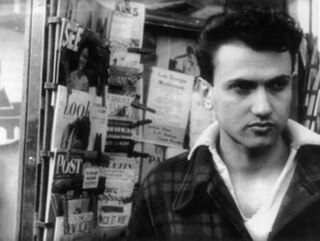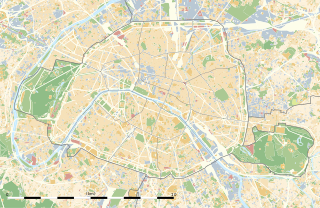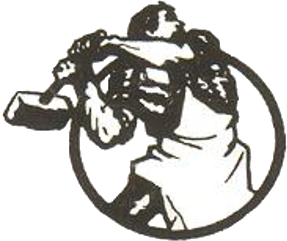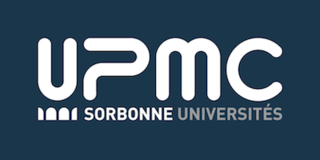The Sorbonne Occupation Committee (French: Comité d'Occupation de la Sorbonne) was a politically radical student group that occupied the Sorbonne during the May 1968 events in France.
The term political radicalism denotes political principles focused on altering social structures through revolutionary or other means and changing value systems in fundamental ways.

The University of Paris, metonymically known as the Sorbonne, was a university in Paris, France, active 1150–1793, and 1806–1970.

The volatile period of civil unrest in France during May 1968 was punctuated by demonstrations and major general strikes as well as the occupation of universities and factories across France. At its height, it brought the economy of France almost to a halt. The protests reached such a point that political leaders feared civil war or revolution; the national government itself briefly ceased to function after President Charles de Gaulle secretly fled France for a few hours. The protests spurred an artistic movement, with songs, imaginative graffiti, posters, and slogans.
The Sorbonne student occupation began Monday, 13 May, after the police withdrew from the Latin Quarter. [1]

As an act of protest, occupation is a strategy often used by social movements and other forms of collective social action in order to take and hold public and symbolic spaces, buildings, critical infrastructure such as entrances to train stations, shopping centers, university buildings, squares, and parks. Opposed to a military occupation which attempts to subdue a conquered country, a protest occupation is a means to resist the status quo and advocate a change in public policy. Occupation attempts to use space as an instrument in order to achieve political and economic change, and to construct counter-spaces in which protesters express their desire to participate in the production and re-imagination of urban space. Often, this is connected to the right to the city, which is the right to inhabit and be in the city as well as to redefine the city in ways that challenge the demands of capitalist accumulation. That is to make public spaces more valuable to the citizens in contrast to favoring the interests of corporate and financial capital.

The Latin Quarter of Paris is an area in the 5th and the 6th arrondissements of Paris. It is situated on the left bank of the Seine, around the Sorbonne.
On 16 May, upon hearing about the successful occupation of the Sud-Aviation factory at Nantes by the workers and students of that city, [2] as well as the spread of the movement to several factories (Nouvelles Messageries de la Presse Parisienne in Paris, Renault in Cléon), [2] the Sorbonne Occupation Committee sent out a communiqué calling for the immediate occupation of all the factories in France and the formation of workers' councils. [2]

Sud-Aviation was a French state-owned aircraft manufacturer, originating from the merger of Sud-Est and Sud-Ouest on 1 March 1957. Both companies had been formed from smaller privately owned corporations that had been nationalized into six regional design and manufacturing pools just prior to World War II.

Nantes is a city in Loire-Atlantique on the Loire, 50 km (31 mi) from the Atlantic coast. The city is the sixth-largest in France, with a population of 303,382 in Nantes and a metropolitan area of nearly 950,000 inhabitants. With Saint-Nazaire, a seaport on the Loire estuary, Nantes forms the main north-western French metropolis.

Presstalis, known until December 2009 as Nouvelles Messageries de la Presse Parisienne (NMPP), is a French media distribution corporation. More than 100 newspapers and 3,500 French and foreign magazines are distributed by Presstalis. The company distributes many of the national newspapers of France and nearly 80% of its magazines and multimedia products, using depositories, independent subsidiaries, or local distributors.








